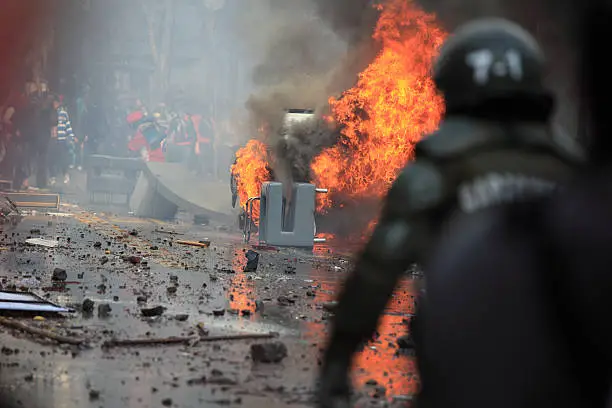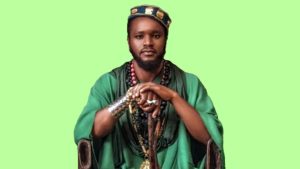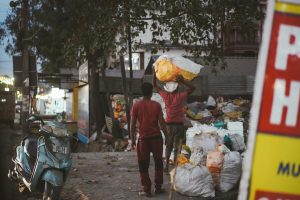Furious protests at move to cement Togo ruling family’s grip on power
3 min read
Creative voices lead defiant protests as Faure Gnassingbé reshapes Togo’s political system to extend family rule
Togo New Constitution Sparks Youth-Led Protests Against Ruling Dynasty
Rage in Lomé as Power Shift Sparks Unrest
Togo is in turmoil after a controversial new constitution effectively allowed Faure Gnassingbé to remain in power indefinitely this time not as president, but as an all powerful prime minister.
While the government insists the move is a step toward parliamentary democracy, angry protests have erupted across the capital, Lomé, where young Togolese see it as a blatant maneuver to cement a nearly 60 year family dynasty.
At least five protesters have died in clashes with security forces in recent weeks, and demonstrations are set to continue this Friday.
From Presidency to Unchecked Premiership
Under the revised constitution, Gnassingbé handed over the presidency now reduced to a symbolic role to 86 year-old Jean Lucien Savi de Tové. Meanwhile, he stepped into a vastly strengthened prime ministerial position, holding all executive authority and command of the military.
Crucially, the change frees him from presidential term limits. The ruling Union pour la République (Unir) party, which dominates the national assembly thanks to a heavily gerrymandered electoral map, quickly rubber-stamped the changes earlier this year without public consultation or referendum.
Protest Fueled by Artists and Activists, Not Politicians

What’s unique about the current wave of unrest is who’s leading it. The traditional opposition, weakened and marginalised, has taken a back seat. Instead, it’s cultural figures rappers, poets, and bloggers—who have sparked a grassroots uprising.
One such figure is rapper Essowe Tchalla, better known as “Aamron.” After releasing a satirical video mocking Gnassingbé’s birthday, he was abducted by security agents in May and later found in a mental hospital. In a disturbing twist, authorities released a hostage-style video of Aamron apologizing and claiming mental illness claims he has since disowned.
Another creative voice, the jailed poet Honoré Sitsopé Sokpor (“Affectio”), has also become a symbol of resistance. Their ability to connect with disaffected youth gives the movement a power the formal opposition has long lacked.
Escalating Crackdowns and Tragic Losses
Protests escalated in late June, with youths setting up barricades across Lomé. Human rights groups say security forces responded with widespread arrests and violent crackdowns. Armed pro-government militias in unmarked pick-up trucks reportedly patrolled the streets, and at least two bodies were found in the city’s lagoons under suspicious circumstances.
While the government blames foreign activists for stirring unrest, many locals see these events as the inevitable outcome of decades of political frustration.
Dynasty or Democracy?
The Gnassingbé family has ruled Togo since 1967, first under Faure’s father, Gnassingbé Éyadéma, and now under Faure himself, who took power in 2005. Critics say the new constitution simply rebrands autocracy under the guise of reform.
The change mirrors other long-ruling regimes in Africa, where leaders use legal tweaks to extend their reigns while presenting a façade of democratic legitimacy. Togo’s pivot to a so-called “Commonwealth-style” parliamentary system after joining the Commonwealth in 2022 has been met with skepticism at home, even as international actors remain largely silent.
Elections Without Enthusiasm
The 17 July local elections passed quietly, with Unir unsurprisingly dominant. But opposition turnout was so low that veteran politician Jean-Pierre Fabre remarked there was “no one else” at his polling station.
Togo’s civil service minister Gilbert Bawara insists the elections were fair and blames the opposition’s weakness for their poor showing. But for many citizens, the entire political process has lost credibility.
New Movement Gains Momentum
On social media, the hashtag #FaureMustGo has gained traction, while a new protest campaign M66, named after Gnassingbé’s birthday has emerged as a rallying point.
Togo’s youth, connected, vocal, and creative, appear determined to challenge the status quo. With international eyes turned elsewhere, it may fall to artists and everyday citizens to keep the flame of democracy alive.







1 thought on “Furious protests at move to cement Togo ruling family’s grip on power”